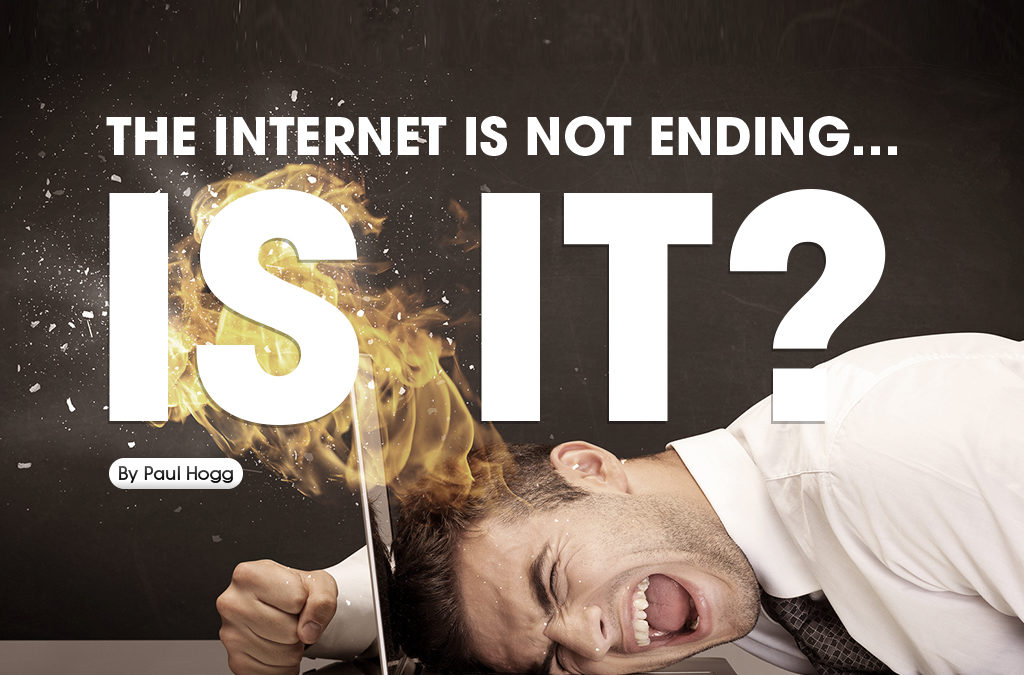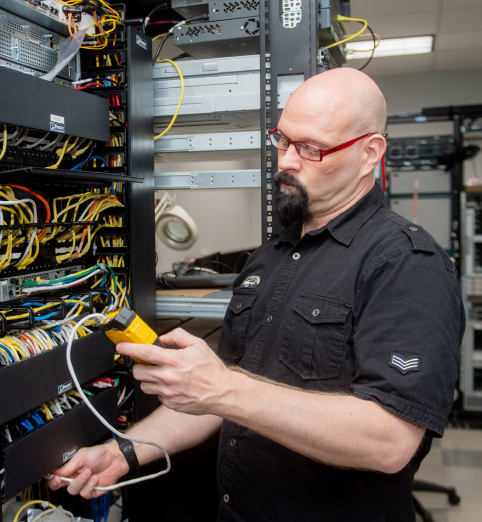Though I never try to date myself—it’s my hope that everyone views me as a mid-20s genius, sipping on a cup of fussy coffee, wearing tight jeans and an ironic t-shirt—I know that’s never truly going to be my perceived persona … my wife has made that very clear. So, in the case of the discussion around Net Neutrality, I’m happily going to date myself by bringing up such topics as the 1980s, old-school TV, the first days of the internet, and maybe even some references to my bad college fashion choices that haunt me to this day. So, let’s do this!
To begin, let’s in no way downplay the coming lack of Net Neutrality. It represents an obvious turning point in our social construct, one that we have come to know and love for the past 20 years. However, though no one truly likes change, the fact remains that change is here and we’ll all have to deal with its potentially horrible consequences.
Now, all politics and revolutionary rhetoric aside, we have to first look at this from a familiar angle. For those of you old enough—I told you I’d date myself—we should all remember a time not so long ago when TV consisted of one price and one set of channels, and if you were really lucky, movie networks. In fact, having more than five channels was crazy for most, and if you didn’t pay for the one price / one size option you were relegated to using an antenna on your roof to get only static-ridden images.
Then, sometime in the early 90s—a time I spent wearing ripped jeans and far too much plaid in my quest to be Eddie Vedder’s lost twin—cable television began offering packages that far outweighed those of the 80s basic cable. At the time, no one seemed to mind. In fact, the extra cost for better service was embraced by most. My point? TV had always been a certain way, and even though we were used to our TV being what it was, we adapted to the new paradigm and moved on, without having a revolutionary war.
Then, of course, let’s look at the early days of the internet. I swear, to this day, I still have nightmares about the squeals and squeaks of dial-up modems taking me to the darkest corners of the internet: at the time that being chat boards and forums with people simply attacking each other for no reason … huh, maybe somethings don’t change.
But when the internet truly took hold, suddenly new pricing for better and faster speeds was introduced. The outcome? People happily paid the price to access the internet faster and easier—doing away with the squeals of dial-up modems and moving into the twenty-first century.
This is not that
But what is the one common thread in this history lesson? When we paid more, we got more—a concept the American Dream is built on. However, the underlying issue of the disappearance of Net Neutrality is we will have to pay more to get back what we have already had. This is not the dream, but more a monetary nightmare.
The fact is, that a pay-more-for-the-same-or-less model is not going to do great things for the United States, or its businesses. For every perceived hostile act of throttling technology, the companies that create that technology may well leave the country—bound for greener pastures and fewer controls.
For instance, take the innovation surrounding things such as IoT. The lack of Net Neutrality could impact that innovation simply by creating lack of choice. The fringes of the truly cutting-edge technological advancements may be hindered. After all, it’s not like ISPs are going to start turning off or charging extra for YouTube right away, but some newly introduced IoT devices may result in only certain vendors being supported or even allowed.
Then, of course, there’s the business world—and I emphasize “world.” If we wall ourselves off from the rest of the world as it pertains to technological connectivity, the rest of the world will simply slip away to continue on without us.
In the end, the internet represents the connective tissue that supports all innovation. Paying for less is never an option, and never good. There’s only one way the internet works—in an even flow. (Thanks Mr. Vedder for the reference!)



